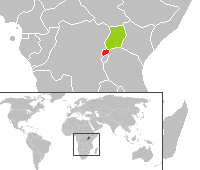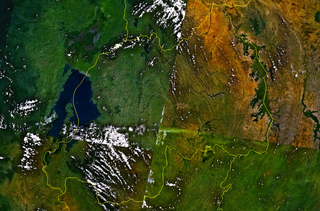
The Oslo I Accord or Oslo I, officially called the Declaration of Principles on Interim Self-Government Arrangements or short Declaration of Principles (DOP), was an attempt in 1993 to set up a framework that would lead to the resolution of the ongoing Israeli–Palestinian conflict. It was the first face-to-face agreement between the government of Israel and the Palestine Liberation Organization (PLO).

The Helsinki Accords, Helsinki Final Act, or Helsinki Declaration was the final act of the Conference on Security and Co-operation in Europe held in Finlandia Hall of Helsinki, Finland, during July and August 1, 1975. Thirty-five states, including the US, Canada, and all European states except Albania and Andorra signed the declaration in an attempt to improve relations between the Communists and the West. The Helsinki Accords, however, were not binding as they did not have treaty status.

The Interim Agreement on the West Bank and the Gaza Strip commonly known as Oslo II or Oslo 2, was a key and complex agreement in the Israeli–Palestinian peace process. Because Oslo II was signed in Taba, it is sometimes called the Taba Agreement. The Oslo Accords envisioned the establishment of a Palestinian interim self-government in the Palestinian territories but did not promise an independent Palestinian state. Oslo II created the Areas A, B and C in the West Bank. The Palestinian Authority was given some limited powers and responsibilities in the Areas A and B and a prospect of negotiations on a final settlement based on Security Council Resolutions 242 and 338. The Accord was officially signed on 28 September 1995.

The Israel–Jordan peace treaty or in full "Treaty of Peace Between the State of Israel and the Hashemite Kingdom of Jordan", sometimes referred to as Wadi Araba Treaty, was signed in 1994. The signing ceremony took place at the southern border crossing of Arabah on 26 October 1994. Jordan was the second Arab country, after Egypt, to sign a peace accord with Israel.
The Calgary Declaration, also known as the Calgary Accord, was an agreement made between most premiers of the provinces and territories of Canada regarding how to approach future amendments to the Constitution. It was signed in Calgary, Alberta, on September 14, 1997, by all Canadian premiers and territorial leaders except Quebec's Lucien Bouchard. The Declaration had followed controversial and divisive constitutional debate in Canada seen during the patriation of the Constitution in 1982, and the subsequent collapse of the Meech Lake and Charlottetown Accords.

Arusha Region is one of Tanzania's 31 administrative regions. Its capital and largest city is the city of Arusha. The region is bordered by Kajiado County and Narok County in Kenya to the north, the Kilimanjaro Region to the east, the Manyara and Singida regions to the south, and the Mara and Simiyu regions to the west. Major towns include Monduli, Namanga, Longido, and Loliondo to the north, Mto wa Mbu and Karatu to the west, and Usa River to the east. The region is comparable in size to the combined land and water areas of the United States state of Maryland.
The Geneva Accords, known formally as the agreements on the settlement of the situation relating to Afghanistan, were signed on 14 April 1988 at the Geneva headquarters of the United Nations, between Afghanistan and Pakistan, with the United States and the Soviet Union serving as guarantors.
The Algeria Declaration was a set of agreements between the United States and Iran to resolve the Iran hostage crisis, brokered by the Algerian government and signed in Algiers on January 19, 1981. The crisis arose from the takeover of the American embassy in Tehran on November 4, 1979, and the taking hostage of the American staff there. By this accord the 52 American citizens were set free and able to leave Iran.
Tripartite means composed of or split into three parts, or refers to three parties. Specifically, it may also refer to any of the following:
The Arusha Accord are a mathcore-technical metal band from Reading, Berkshire who took their name from an agreement aimed at ending the Rwandan genocide.

United Nations Security Council resolution 846, adopted unanimously on 22 June 1993, after reaffirming Resolution 812 (1993) on the situation in Rwanda and noting a report by the Secretary-General Boutros Boutros-Ghali, the Council established the United Nations Observer Mission Uganda–Rwanda (UNOMUR) for an initial period of six months.

United Nations Security Council resolution 872, adopted unanimously on 5 October 1993, after reaffirming resolutions 812 (1993) and 846 (1993) on the situation in Rwanda and Resolution 868 (1993) on the security of United Nations operations, the Council stressed the need for an international force in the country and therefore established the United Nations Assistance Mission for Rwanda (UNAMIR).

United Nations Security Council resolution 893, adopted unanimously on 6 January 1994, after reaffirming resolutions 812 (1993), 846 (1993), 872 (1993) and 891 (1993) on Rwanda, the Council noted that the situation in Rwanda could have implications for neighbouring Burundi and authorised the deployment of a second military battalion of the United Nations Assistance Mission for Rwanda (UNAMIR) to the demilitarised zone.

United Nations Security Council resolution 909, adopted unanimously on 5 April 1994, after reaffirming resolutions 812 (1993), 846 (1993), 872 (1993), 891 (1993) and 893 (1994) on Rwanda, the Council expressed concern at deteriorating security and humanitarian situation in the country, particularly in Kigali, and extended the mandate of the United Nations Assistance Mission for Rwanda (UNAMIR) until 29 July 1994.
The following lists events that happened during 1993 in Rwanda.









